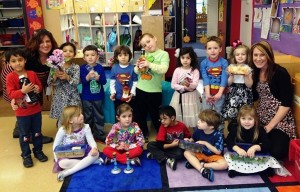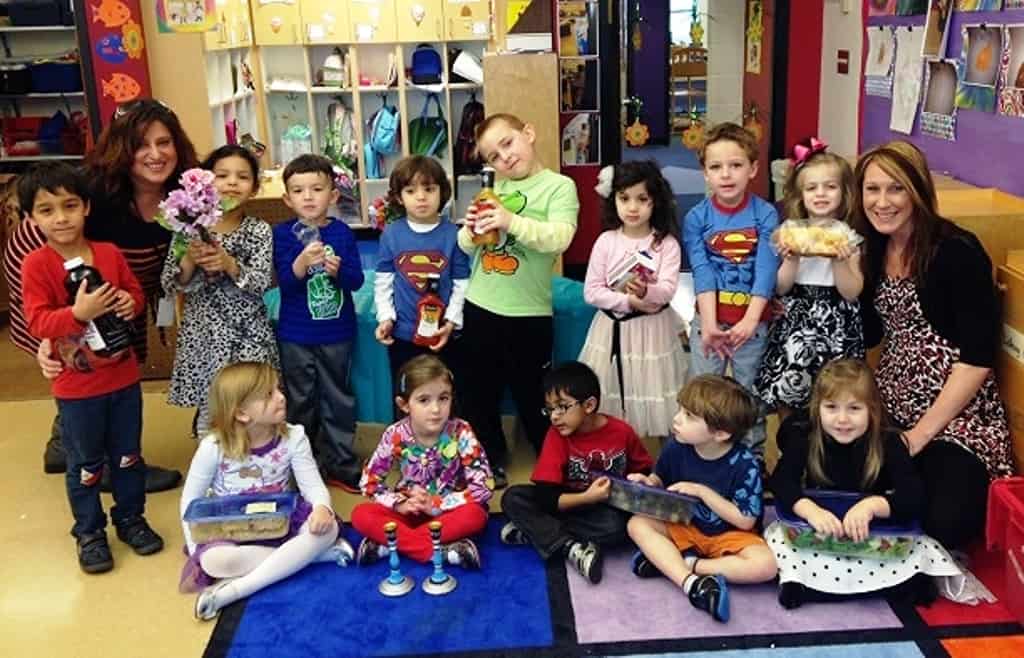
Strelitz preschool four-year-olds show off their Shabbat dinner donations, along with teacher Elyssa Brinn and assistant Jacquie Lam.
At Hebrew Academy and the Strelitz Early Childhood Center preschool, the Sochi Olympics sparked a unique twist on performing acts of kindness. After all, what is better than inspiring others to practice kindness and pass it on?
Carlyn Goldstein, third grade teacher and HAT alum, designed a special bulletin board of the five gold Olympic rings. “Each ring,” says Goldstein, “represents an act of kindness which everyone strives to achieve: tzedakah, peace, friendship, payit- forward, and respect. Throughout the Olympics, students worked on each goal. It was great to see the joy on their faces from doing simple things that made others smile and feel good inside.”
Preschool teacher Elyssa Brinn also worked with her four-year-olds to celebrate their own version of the Olympic Games —the Mitzvah-lympics. Students created “torches” and visited the freezer to feel how cold it would be in Sochi, Russia. After a discussion about the letter “M” for “mitzvah,” they carried out a week of mitzvot to make the world a better place. Activities included making get well cards, cleaning up trash around the campus, and arranging through Jewish Family Service for a needy family to have a delicious Shabbat dinner. They even made the challah from scratch!
Preschooler Hattie Friedman decided that providing one Shabbat dinner for a needy family was not enough. She wanted to do more, so she and her classmates along with Brinn invited the entire school to participate in a canned food drive to fill the JFS food pantry in time for Purim. They developed fliers promoting the drive (which gave them great handwriting practice), and then labeled and painted collection boxes for the canned goods. At the drive’s completion in March, these young mensches put the food in wagons and walked with their trusty chaperones to make a special delivery to JFS to stock the shelves. This was done as part of Hattie’s “Family Week” project, in which each preschooler gains early public speaking experience by sharing information and stories about his/her family in front of the class with classmates.
“Our students learned the importance of doing something for someone who cannot return the favor,” says Rabbi Mordechai Wecker, head of school. “Additionally, when we teach the values of tzedakah through the use of current events, such as the Sochi Olympic Games, it adds relevance and meaning in the minds of each student. The morals become strongly imprinted during these foundational learning years, establishing positive character traits for a lifetime of good.”
by Carin Simon, admissions director

